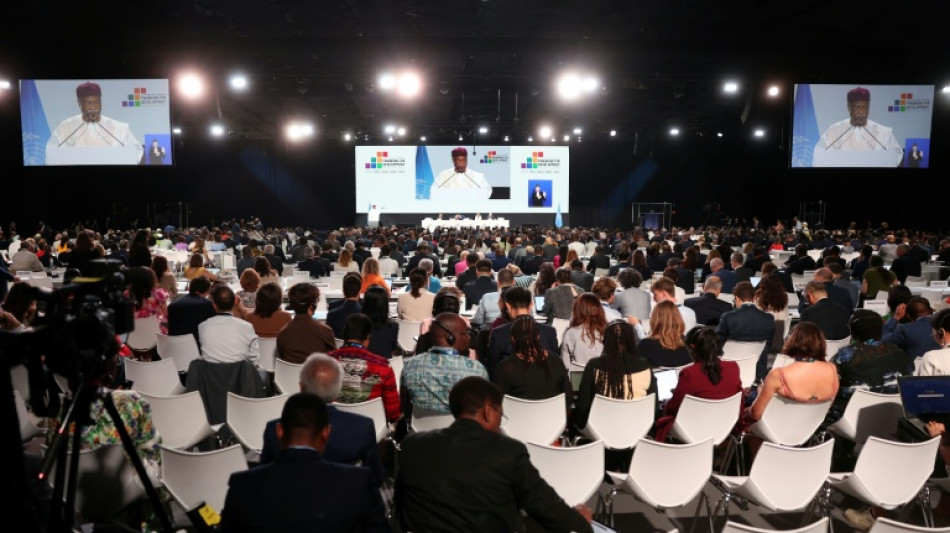
-
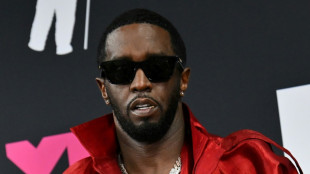 Partial verdict in Combs trial, jury will keep deliberating
Partial verdict in Combs trial, jury will keep deliberating
-
Djokovic thanks 'miracle pills' after Wimbledon win
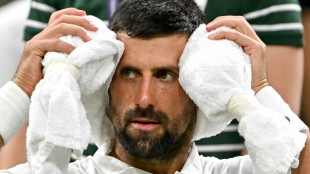
-
 US college bans transgender athletes following swimming furor
US college bans transgender athletes following swimming furor
-
Global stocks mixed as markets track US trade deal prospects
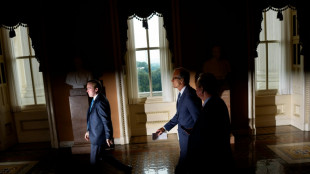
-
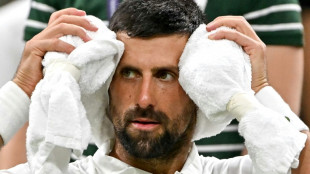 Djokovic up and running at Wimbledon in bid for Grand Slam history
Djokovic up and running at Wimbledon in bid for Grand Slam history
-
Jury reaches partial verdict in Sean "Diddy" Combs trial
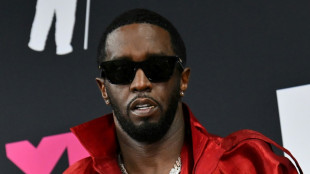
-
 Giroud signs one-year deal with Ligue 1 club Lille
Giroud signs one-year deal with Ligue 1 club Lille
-
Gauff vows to make changes after shock Wimbledon exit
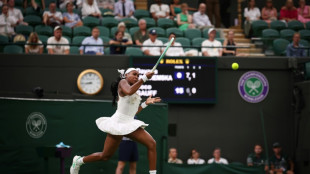
-
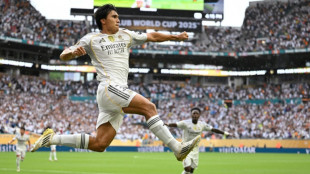 Gonzalo heads Real Madrid past Juventus and into Club World Cup quarters
Gonzalo heads Real Madrid past Juventus and into Club World Cup quarters
-
Gauff crashes out of Wimbledon on day of shocks
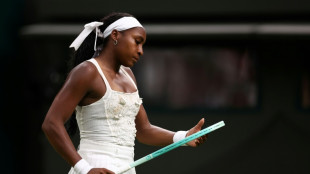
-
 Big automakers report US sales jump on pre-tariff consumer surge
Big automakers report US sales jump on pre-tariff consumer surge
-
'Alone' Zverev considers therapy after shock Wimbledon exit

-
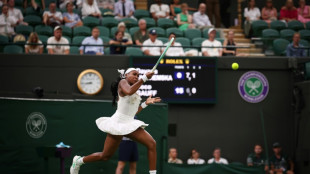 Second seed Coco Gauff knocked out of Wimbledon
Second seed Coco Gauff knocked out of Wimbledon
-
Switzerland comes to the aid of Red Cross museum

-
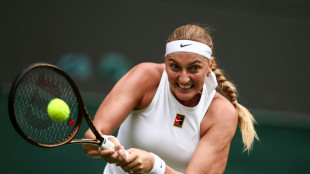 'That's life': No regrets for former champion Kvitova after Wimbledon farewell
'That's life': No regrets for former champion Kvitova after Wimbledon farewell
-
AI videos push Combs trial misinformation, researchers say
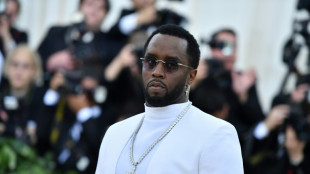
-
 UK govt guts key welfare reforms to win vote after internal rebellion
UK govt guts key welfare reforms to win vote after internal rebellion
-
Polish supreme court ratifies nationalist's presidential vote win
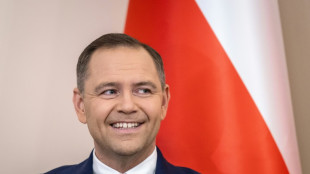
-
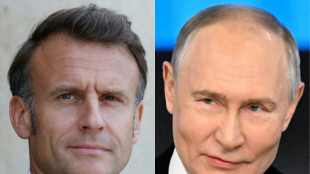 Macron, Putin discuss Iran, Ukraine in first talks since 2022
Macron, Putin discuss Iran, Ukraine in first talks since 2022
-
French league launches own channel to broadcast Ligue 1

-
 Man City left to reflect on Club World Cup exit as tournament opens up
Man City left to reflect on Club World Cup exit as tournament opens up
-
Shock study: Mild electric stimulation boosts math ability
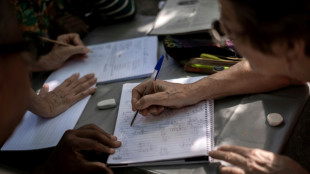
-
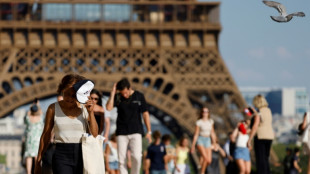 Europe swelters as surprise early summer heatwave spreads
Europe swelters as surprise early summer heatwave spreads
-
Third seed Zverev stunned at Wimbledon

-
 Israel expands Gaza campaign ahead of Netanyahu's US visit
Israel expands Gaza campaign ahead of Netanyahu's US visit
-
Gaza mourns those killed in Israeli strike on seafront cafe
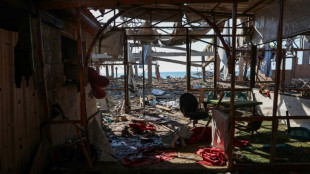
-
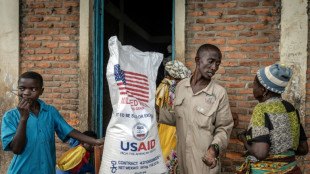 Rubio hails end of USAID as Bush, Obama deplore cost in lives
Rubio hails end of USAID as Bush, Obama deplore cost in lives
-
Berlusconi family sell Monza football club to US investment fund

-
 UN aid meeting seeks end to Global South debt crisis
UN aid meeting seeks end to Global South debt crisis
-
Trump ramps up Musk feud with deportation threat
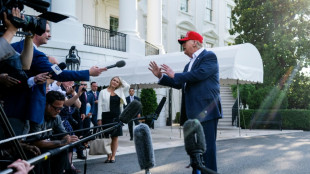
-
 French paparazzi boss handed 18-month suspended sentence for blackmail
French paparazzi boss handed 18-month suspended sentence for blackmail
-
Gilgeous-Alexander agrees record $285 mln extension: reports

-
 Tearful former champion Kvitova loses on Wimbledon farewell
Tearful former champion Kvitova loses on Wimbledon farewell
-
IMF urges Swiss to strengthen bank resilience
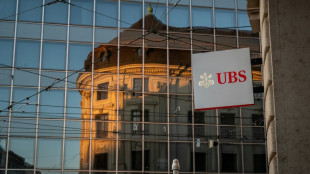
-
 Sri Lanka eye top-three spot in ODI rankings
Sri Lanka eye top-three spot in ODI rankings
-
Trump hails new 'Alligator Alcatraz' migrant detention center
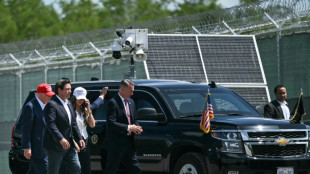
-
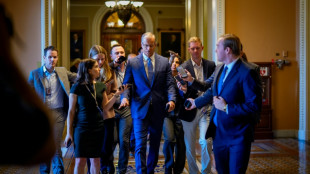 US Senate approves divisive Trump spending bill
US Senate approves divisive Trump spending bill
-
Krejcikova toughs it out in Wimbledon opener, Sinner cruises
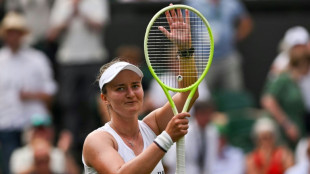
-
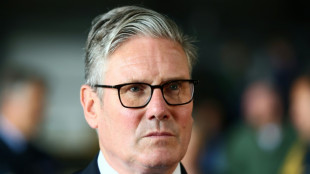 UK govt braces for crunch welfare reforms vote amid major rebellion
UK govt braces for crunch welfare reforms vote amid major rebellion
-
Shifting to Asia, Rubio meets Quad and talks minerals
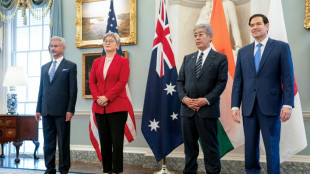
-
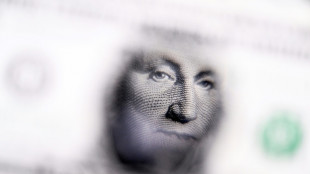 Stocks diverge while tracking US trade deal prospects
Stocks diverge while tracking US trade deal prospects
-
Bruce Lee Club closes archive doors citing operating costs

-
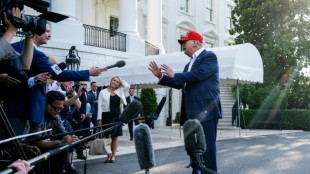 Trump ramps up Musk feud with deportation, DOGE threats
Trump ramps up Musk feud with deportation, DOGE threats
-
BTS announces comeback for spring 2026

-
 Beating England without Bumrah 'not impossible' for India captain Gill
Beating England without Bumrah 'not impossible' for India captain Gill
-
Krejcikova battles back against rising star Eala to win Wimbledon opener
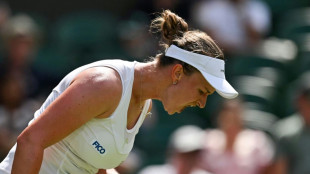
-
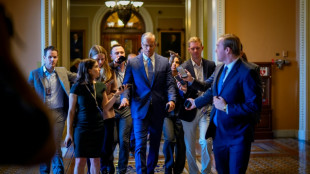 US Republicans close in on make-or-break Trump mega-bill vote
US Republicans close in on make-or-break Trump mega-bill vote
-
Arsenal sign goalkeeper Kepa from Chelsea
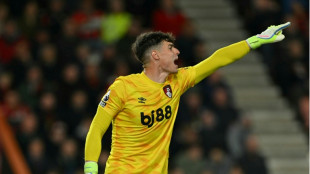
-
 Olympic champion Zheng knocked out of Wimbledon
Olympic champion Zheng knocked out of Wimbledon
-
Line judges missed at Wimbledon as AI takes their jobs
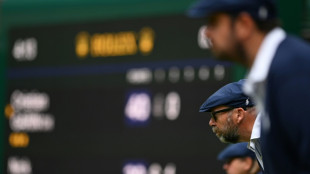

UN aid meeting seeks end to Global South debt crisis
More than 100 nations attending a UN aid conference pledged this week to help defuse the ticking time bomb of developing countries' ballooning debt, but deciding how is proving more divisive.
"The debt burden is crippling the developing world," UN chief Antonio Guterres told the conference in the Spanish city of Seville that reaffirmed support for lifting low-income nations out of their predicament.
"We must fix the global debt system which is unsustainable and unfair," Guterres pleaded at the gathering, which runs to Thursday.
The total external debt of the group of least developed countries has more than tripled in 15 years, according to UN data.
Developing nations now pay $1.4 trillion every year to service their debt -- its highest level in 20 years.
Global South nations contend with interest rates two times higher than their richer counterparts when they borrow, increasing the burden.
More than three billion people live in countries that fork out more on interest repayments than on health, according to a report commissioned by the late Pope Francis and coordinated by Nobel laureate economist Joseph Stiglitz.
A litany of international crises from the Covid-19 pandemic to conflicts have plunged the world economy into turbulence in recent years, with repercussions felt acutely in lesser developed countries.
Experts also blame the proliferation of costly and grandiose projects, particularly in African countries that have taken out billions in loans from China.
"Many low-income and vulnerable countries are trapped in a vicious cycle of debt, poverty and climate-induced crisis," said the Action Aid NGO, which warned of a "critical" situation.
The macroeconomic deterioration has real-world impacts for ordinary citizens, "notably on health policies", Francoise Vanni, of The Global Fund to Fight AIDS, Tuberculosis and Malaria, told AFP.
- 'Lack of commitment' -
In Seville, several world leaders from the Global South, including Kenyan President William Ruto and Senegal's Bassirou Diomaye Faye, called for a reform of the international financial system to resolve the vicious cycle.
The document adopted in Seville -- snubbed by key actor the United States -- calls for the general adoption of clauses in loans that allow borrowing countries to temporarily suspend repayments due to an external shock or natural disaster.
Storms, droughts and floods turbocharged by climate change disproportionately affect low-income countries that have historically contributed the least to the emissions that drive global warming.
The so-called "Seville Commitment" asks creditors to increase loans in local currency to limit risks caused by foreign exchange fluctuations.
It also urges the creation of a central database housed in the Washington-based World Bank "to harmonise and strengthen debt data reporting, enhance debt transparency and reduce reporting burdens".
The World Bank says only a quarter of poor nations declare information on their new loans, denying crucial information to lenders.
The Vatican-commissioned report also recommended "systemic reforms" and "essential investments" to tackle the crisis, suggesting an end to preferential treatment for private creditors and extending debt relief measures introduced during the pandemic.
But NGOs want to go much further than boosting transparency by cancelling debt altogether for the most stricken countries.
Hundreds of protesters marched through the stifling heat of Seville on Sunday to demand the measure, which has occasionally been applied in the past.
But donor countries, which face debt problems of their own, are reluctant to implement such an initiative, making it unlikely.
Action Aid denounced the Global North's "lamentable lack of tangible commitment to truly ending this debt crisis".
M.AbuKhalil--SF-PST
